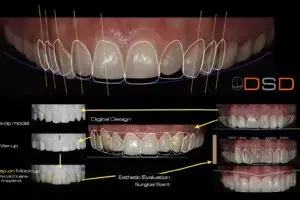Maintaining healthy teeth and gums is crucial not only for a confident smile but also for overall well-being. Good oral health influences how we eat, speak, and smile, and it also has a significant impact on our self-esteem. It is vital to develop and follow healthy oral hygiene habits from a young age, as this can contribute to a lifetime of healthy teeth and gums. In this article, we’ll explore why oral health matters, the key factors to maintaining it, and how different stages of life affect your oral care routine.
Why Oral Health Matters
Oral health is much more than just a beautiful smile. It plays a key role in your overall health. Studies have shown that poor oral health can lead to serious conditions like heart disease, diabetes, and respiratory issues. For instance, gum disease is linked to heart disease and can also complicate conditions like diabetes. The bacteria found in gum disease can enter your bloodstream and affect other parts of your body, including your heart.
Moreover, untreated dental issues, such as cavities or infections, can lead to pain and difficulty eating, affecting your quality of life. Preventing these issues is far easier and more cost-effective than treating them later. So, ensuring proper oral care is a simple yet vital way to keep your entire body healthy.
Key Factors for Maintaining Healthy Teeth and Gums
There are several essential habits that should be part of your daily routine to ensure long-term oral health. These habits can prevent dental issues like cavities, gum disease, and bad breath.
1. Regular Brushing and Flossing
Brushing your teeth at least twice a day and flossing once a day are the two most important habits for good oral health. Use a fluoride toothpaste, as fluoride helps to prevent cavities and strengthens enamel. When brushing, don’t forget your tongue, as bacteria can accumulate there too.
Flossing removes plaque and food particles between your teeth, areas that a toothbrush often misses. Plaque buildup can lead to gum disease and cavities, so it’s crucial not to skip this step.
2. Regular Dental Visits
Even with perfect at-home care, you need to visit a professional dentist regularly. A dental checkup, typically every six months, allows the dentist to spot potential problems early, such as cavities, gum disease, or other oral health issues that may not be visible to you. Professional cleanings are also important to remove tartar buildup, which brushing and flossing can’t eliminate.
3. Healthy Diet
What you eat has a direct impact on your oral health. Foods rich in calcium, like milk, cheese, and yogurt, help strengthen your teeth. Leafy greens and crunchy fruits and vegetables, such as apples and carrots, also contribute to oral health by helping clean your teeth as you chew.
On the other hand, sugary foods and drinks can contribute to cavities and gum disease. Soda, candy, and even fruit juices are all high in sugar, which feeds bacteria in your mouth and leads to plaque buildup. Therefore, a balanced diet full of nutritious foods is key to maintaining strong teeth and healthy gums.

Age-Related Considerations for Oral Health
Oral care needs change as you age. From childhood to senior years, it’s important to adapt your oral health routine to match the challenges that come with different life stages.
For Children
Teaching children good oral hygiene habits is essential. Children should begin brushing their teeth as soon as they have their first tooth, using a soft-bristled toothbrush and fluoride toothpaste. Dental visits should begin around the age of one or when the first tooth appears, allowing the dentist to spot any early signs of dental issues.
For Adults
As adults, it’s vital to maintain consistent oral hygiene habits. During adulthood, we may experience issues like tooth sensitivity, cavities, and gum disease, which need to be managed. Preventive treatments like fluoride treatments or sealants can be beneficial, especially for those at higher risk for cavities.
For Seniors
Seniors face challenges like dry mouth due to medication, gum recession, and tooth loss. These issues require special attention. Regular dental checkups and maintaining a proper oral care routine become even more crucial and perform dental X-Ray when required. Additionally, seniors should be cautious about the effects of age-related conditions, such as arthritis, which can make brushing and flossing more difficult. Adapting your oral care routine based on your life stage will help keep your teeth and gums healthy for years to come.
Common Oral Health Issues and How to Prevent Them
Several oral health issues can arise over time, but the good news is that many of them are preventable with proper care.
1. Gum Disease
Gum disease, also known as periodontal disease, is a infection of the tissues that support your teeth. It begins with gingivitis, which causes red, swollen gums that bleed when brushing or flossing. If left untreated, gingivitis can lead to periodontitis, a more severe form of gum disease that can result in tooth loss. To prevent gum disease, brush and floss regularly, and avoid smoking, which is a major risk factor.
2. Tooth Sensitivity
Tooth sensitivity is a common problem for many people, especially when consuming hot or cold foods. It can be caused by worn-down enamel, gum recession, or cavities. If you experience tooth sensitivity, a special toothpaste designed for sensitive teeth can help alleviate discomfort. If the sensitivity persists, it’s essential to visit a dentist for a thorough evaluation.
3. Cavities
Cavities are one of the most common dental problems, and they can lead to pain, tooth infections, and tooth loss if untreated. To prevent cavities, avoid sugary snacks and drinks, and brush and floss regularly. Your dentist may also recommend fluoride treatments or sealants to protect your teeth.
4. Bad Breath
Bad breath can be caused by several factors, including poor oral hygiene, dry mouth, or underlying medical conditions. Regular brushing, flossing, and staying hydrated can help alleviate bad breath. If bad breath persists, it may be a sign of an underlying health issue, so it’s important to consult a dentist.
Conclusion
Maintaining healthy teeth and gums requires a commitment to daily care and regular visits to a dentist. By following proper brushing and flossing techniques, eating a balanced diet, and visiting your dentist regularly, you can ensure a lifetime of healthy teeth. Remember that oral health is not just about having a beautiful smile; it’s also a key factor in maintaining your overall health.
Taking these steps will help you maintain not only a beautiful smile but also a healthier, happier life. It’s also important to consider choosing the right toothpaste for your individual needs, as it can make a significant difference in preventing tooth sensitivity or cavities. Managing stress effectively can also prevent teeth grinding, which can cause long-term dental damage. In addition, early detection of any dental issues during routine checkups can save you from extensive treatments down the road. Be mindful of the signs of tooth infections and seek professional care if you experience any unusual pain or discomfort.


